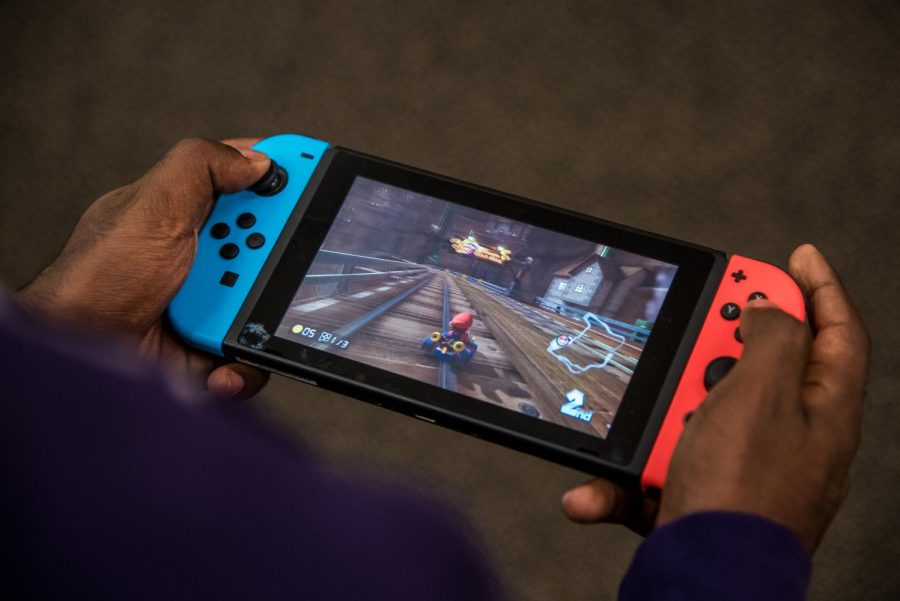Before online multiplayer gaming and servers hosted players from across the globe, there was nothing to multiplayer beyond you, a couple of friends, a TV and a couch. Though the number of exclusively local or couch multiplayer games has dwindled in recent years, fans of these sorts of games believe the experience remains unique and cannot be replicated through online multiplayer.
“I feel like the human connection is lost,” CAS first-year Daniel Cienava said. “You can talk to a voice online, but you’re not specifically in that moment with them. You may be seeing the same thing, but you’re not in the room together.”
This lack of personal connection fosters rud or offensive online interactions, says CAS sophomore Matias Bermudez.
“They’re talking to these faceless voices so they just say all of this crazy stuff, even like racial slurs or something,” Bermudez said. “It’s only because they can’t see the other person.”
Certain online multiplayer titles lack the option for voice chat between players. CAS senior Steven Schiffner said the lack of an effective method to communicate in competitive online games often leads to frustration.
“I’m not the type to really tilt very easily, but I get really frustrated playing online sometimes,” Schiffner said. “It’s interesting because I wouldn’t [if it was] the same situation in real life. It’s definitely a lot friendlier and less salty offline.”
Aside from the suffering social atmosphere, some players believe that the online multiplayer version of more competitive games, such as the Super Smash. Bros series, cannot compare to the original couch multiplayer experience from a technical standpoint.
“There’s a lot of purists who [think] it doesn’t feel the same playing the game because of the input lag, so it’s not a true one-to-one experience,” Bermudez said. “Some people don’t see it as a viable alternative.”
However, Bermudez did emphasize some benefits to online multiplayerexist, especially for larger-scale multiplayer games.
“There are very obvious advantages to online,” Bermudez said. “You can play with people from far away, people you don’t know at all. You get to meet them because of the internet. If you need a game that’s going to have 100 people or 50 people, you probably can’t all be in the same room, so that also helps.”
Bermudez believes that online multiplayer will only continue to grow, making even more local multiplayer a more niche experience.
“I think as we move towards the future and online capabilities get better and better, what couch co-op is going to be limited to is people who willingly are couch co-op die-hards or just for really young children who don’t have their own separate console,” Bermudez said. “I think the demographic of people who do couch co-op is going to be drastically shortened to those extremes.”
Cienava agreed that couch multiplayer is on the decline, but argued those who still want the experience of local multiplayer games can rely on certain companies to continue giving players that option.
“There are certain companies that gamers who want to have that quintessential couch multiplayer experience are flocking to, such as Nintendo,” Cienava said. “Nintendo does a really good job. They are the kings of couch multiplayer. They really capture that market and they’ve been doing it for years, so they know all the ins and outs”
Schiffner concluded that fans of couch multiplayer will be the ones responsible for keeping it alive in a gaming industry continually moving towards online-exclusive experiences.
“I think that as long as people are into retro gaming and as long as communities like the fighting game community exist, there will be a place for couch multiplayer,” Schiffner said.
A version of this article appeared in the Monday, Oct. 29 print edition. Email Ethan Zack at [email protected].


























































































































































